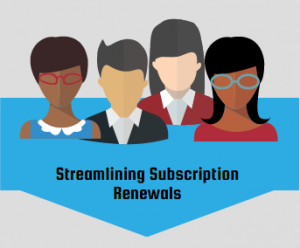Chasing Renewals: When Your Buyer and User Are Not the Same
 In public radio they call it “sustaining gifts.” Donors agree to have a certain amount deducted from their credit card each month. They are “renewing” their public radio membership.
In public radio they call it “sustaining gifts.” Donors agree to have a certain amount deducted from their credit card each month. They are “renewing” their public radio membership.
When I worked as a public radio reporter, I often had to pitch this option on-air to listeners. In the past, textbooks were adopted in five- to seven-year cycles with a high price tag and no “renewals.” Once a textbook went to print, that was it. Unless there was a major error that demanded a reprint, there was no “renewing” of the textbook. Now, with the advent of ed-tech, it’s all about the renewals.
My company, Listenwise, sells subscriptions to schools and districts to our premium platform built to teach listening skills with public radio and podcasts. We are in our third year, and have a decent-sized renewal base of customers.
But it’s still a time consuming and sometimes difficult process to get schools to renew on time. And this is the time of year most of the renewals come in.
Software as a service (SaaS) has made publishing into a subscription business with promising operating margins because of the renewals. Products providing real value should be able to count on a strong percentage of last year’s business as renewing revenue.
In the consumer space these renewals often occur automatically. You renew your Netflix account, your cell phone plan and your Amazon Prime account without thinking.
But with schools it’s not that easy. Most ed-tech companies do not automatically put through a renewal on a credit card. The process is still done with a proposal, which generated a purchase order and then an invoice. And with K12 school sales, the buyer and the user are usually not the same person.
That holds true for renewals. We need to be checking in with our users–the teachers–well before school ends to ensure good usage and support for the renewal. But right around the time the renewal happens, school lets out and we are now looking to find the customer–the administrators–to put together the purchase order.
While the subscription may end at the end of June, the school doesn’t get the new budget money until July, so don’t expect the purchase order and check to be on time.
Some ed-tech companies have built an automatic renewal into the process, such as Ruvna. You must tell them if you want to cancel, otherwise the service (which helps locate students in real-time during an emergency) automatically renews your subscription. But with a curriculum product, administrators want to check with teachers using the tools before committing to a renewal.
Renewal time makes me think about how we can streamline our process so that next year our renewals come in smoothly and we can focus all of our energy on new business for the new year.
